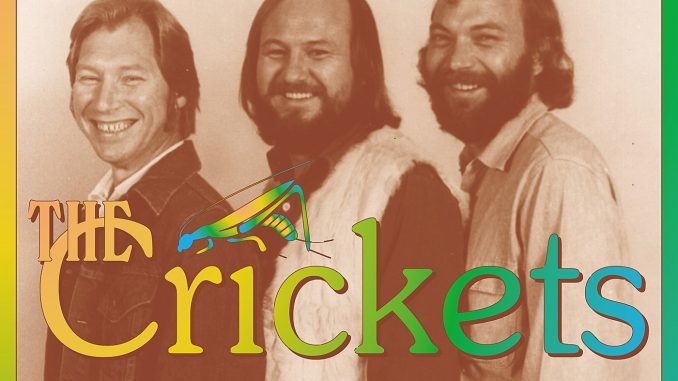
The drummer and songwriter who helped provide the soundtrack to countless lives.
It was announced on The Buddy Holly Facebook page that Cricket drummer and songwriter Jerry Allison had died on Monday 22nd August at the age of 82. Buddy Holly is a bona fide rock’n’roll legend, whose life and legacy were tragically cut short on February 3rd 1959 in the plane crash at Clear Lake, Iowa. What is sometimes overlooked is how influential his backing band The Crickets were pre and post that fatal crash, which itself is now part of rock’n’roll legend, and Jerry Allison was at the heart of The Crickets with his songwriting and innovative drumming. He was also the main reason that post-Holly Crickets maintained a successful career from the early ‘60s and into the 21st Century.
Jerry Ivan Allison was born on August 31St 1939, in Hillsboro, Texas, and worked with Buddy Holly on demos from 1954 well before the formation and subsequent success of The Crickets based on their recordings at Holly’s Manager Norman Petty’s Clovis, New Mexico, studio. Jerry Allison was co-writer of the songs ‘That’ll Be The Day’ and ‘Peggy Sue’, which was written about Peggy Sue Gerron who subsequently become Jerry Allison’s wife. It has also been claimed that Norman Petty was quite creative in his use of writing credits with some of Jerry Allison’s writing input not being recognised, particularly on ‘Not Fade Away’. Following Holly’s death, Jerry Allison secured the rights to The Cricket’s name and set about extending their career with various members over the years, which included Holly’s friend and pre-Cricket collaborator Sonny Curtis, keyboardist Glen D Hardin, who subsequently played with Elvis Presley, Gram Parsons and in Emmylou Harris’s Hot Band, together with original Cricket bassist Joe B Maudlin, and in the ‘70s British musicians guitarist Albert Lee and Family and Blind Faith bassist Ric Grech, and in the ‘80s Waylon Jenning’s band member and leader Gordon Payne.
While the post-Holly Crickets couldn’t match their success with Holly in the United States, they were able to build a significant following in the UK with albums such as ‘In Style With The Crickets’ and ‘Something Old, Something New’. At the same time, Jerry Allison and Sonny Curtis became significant studio players in the emerging Los Angeles music scene due to their relationship with fellow Texan, Snuff Garrett. The changing tastes of record buyers by the mid ‘60s meant that Jerry Allison put The Crickets on hold, preferring to concentrate on his studio work. At the start of the ‘70s, Jerry Allison detected the first hints of a Rock and Roll Revival and recorded ‘Rockin ‘50s Rock & Roll’ an album of Cricket covers with producer Delaney Bramlett, Sonny Curtis, and Glen D. Hardin, with a guest slot by Eric Clapton. The Cricket revival continued when Allison and Curtis were asked to guest on Clapton’s eponymous debut solo album in 1970.
The British version of The Crickets with Albert Lee and Ric Grech recorded albums like ‘Long Way From Lubbock’ and toured in the early to mid ‘70s, with a post-Burrito Brothers Gram Parsons keen to join the band on one tour. It was Jerry Allision who evidently refused to tour with Gram Parsons as he was concerned about Parson’s drug habit, and the risk it would prove as they toured the more conservative parts of Texas and the South. Later in the decade, The Crickets recorded and toured with Waylon Jennings, bringing that relationship full circle as Jennings had played bass with The Crickets in 1959. The early influence of The Crickets’ music on the Beatles was recognised in the ‘80s when Paul McCartney guested on 1988’s ‘T Shirt’. The ‘90s saw Jerry Allison and The Crickets touring and recording with Nanci Griffiths, and in 2003 The Crickets revisited their back catalogue with a legion of their fans from rock’n’roll, americana, and country, including John Prine, Rodney Crowell, Graham Nash, Eric Clapton, and ‘The Crickets and Their Buddies’ included the last studio recording of Waylon Jennings career.
There we have it, Buddy Holly may be a true rock’n’roll legend, but his legacy and the legacy of his backing band The Crickets would be significantly diminished if it wasn’t for the contribution of songwriter and drummer Jerry Allison. He may have had a stuttering one-hit-wonder of a solo career with ‘Real Wild Child’ in 1958, but Jerry Allison helped change the sound of rock’n’roll, country, and subsequently Americana. There aren’t many musicians who can confidently make a similar claim.


